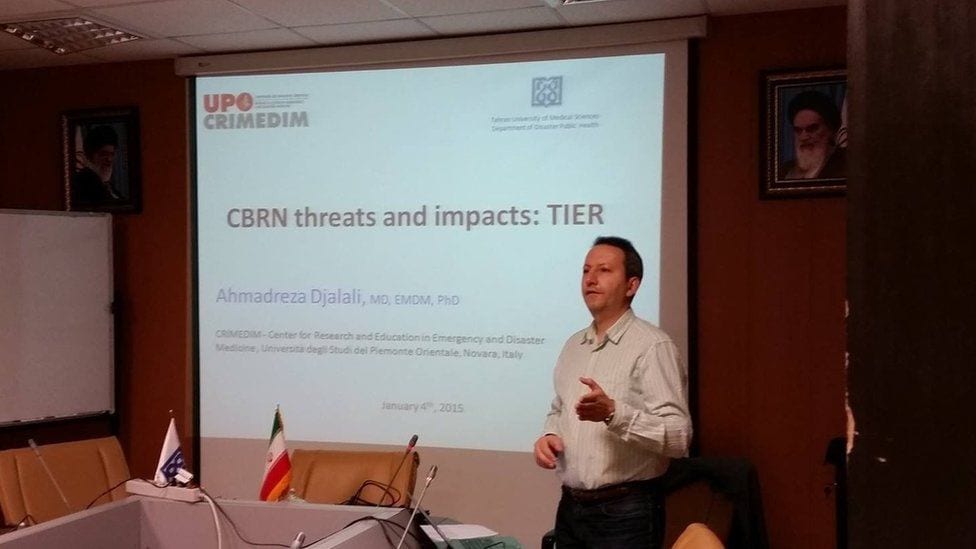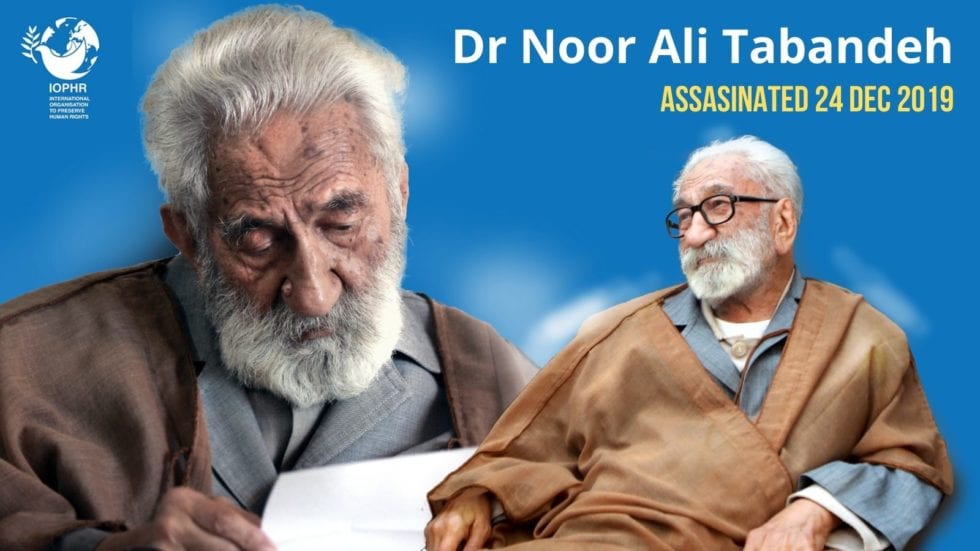Just recently worldwide media have reported on the serious change in the case of Dr Ahmadreza Djalali, a Swedish-Iranian doctor in emergency medicine, sentenced to death in Iran on charges of espionage. He was arrested in 2016, in Iran, during a business trip, accused of spying for Israel. Worrying reports have now emerged that the death sentence will be carried out by the end of May. Human rights groups are pointing out that the Iranian regime are threatening to execute Djalali in retaliation of former Iranian judiciary official Hamid Nouri, who is currently facing international war crimes charges by a Swedish court. Nouri has had a central role in the mass execution of thousands of political prisoners in Iran, in 1988. His verdict will be announced in July and if convicted he will face life imprisonment.

Once again we are witnessing innocent people being held hostage by the Iranian authorities to put pressure on another government. Or rather, innocent people are held hostage by a diabolical authoritarian system to pressure a democratic and free system. Although Djalali is put under the most immense inhumane pressure, he is not alone, his family in Sweden are also being psychologically tortured. In a larger perspective academics around the world are being pressured to avoid collaborations with certain countries in fear of similar situations being repeated.
We’ve seen these types of hostage situations too many times, and although each and every one of them involves individuals going through extreme tragedies, they also have many elements in common. When Nazanin Zaghari Ratcliffe, also charged with spying during a family visit in Iran, was arrested, her daughter was only two years old. On her release, in March 2022, she had spent six years in Iranian prison and no one can return those precious childhood years to her or to her daughter. Some people took offense when Nazanin expressed criticism on how long it had taken the British government to bring her back home. But she had certainly a point.

The same goes for Djalali’s case, he has been in prison for six years, and clearly the silent diplomacy that politicians in Sweden are referring to is not working. During his academic career, Djalali has collaborated with several universities across Europe, many who have engaged in his case and made sharp statements against the Iranian regime following his unfair trial. For instance, Belgian universities have made clear that they will stop collaborating or starting new projects with academics from Iran, something the Swedish universities have refrained from because they find that such and intervention would jeopardize the progress of science, which seems somewhat naive. Jeopardizing Dr Djalali’s life is a direct endangerment of the progress of science. Dr Djalali holds a PHD in disaster emergency medicine, which is a rare kind of knowledge that the world is in great need of now during the Corona pandemic. Naive is also having one of the well known Parsi brothers, namely Rouzbeh Parsi, as head of the Middle East program at the Swedish institute of international affairs (read more about the Parsi brothers here https://english.shabtabnews.com/2021/05/14/the-scheming-parsi-brothers-modern-governmental-influencers/) and inviting him as an expert on Iranian affairs and involving mr Parsi directly on issues regarding Iran. Sweden’s passiveness and naivety is problematic, not only for Djalali, but in general it is troublesome when democratic countries cuddle with authoritarian regimes, something that has become more evident now with the Russian invasion of Ukraine.
It is troublesome when democratic countries cuddle with authoritarian regimes.
Iran’s arbitrary detention of dual nationals is a well known practice, but not the only method they employ to enforce their political agenda. The Iranian regime has also put into system to identify charismatic and influential people within the country, who are not following the stream, who are speaking their mind freely without fear of retaliation and as such they are quickly gaining popularity and respect among the people. Such individuals are the regime’s biggest fear as they are well aware of the power of unity and will do anything to avoid another Green Movement or nationwide protests. These individuals are being carefully selected from every corner of the Iranian society including political activists, writers, journalists, lawyers, ethnic minorities, religious minorities, even sportsmen. So many innocent and influential individuals have lost their lives at the hands of the regime like the young wrestler Navid Afkari, journalist Ruholla Zam, Behnam Majoubi a young follower of the persecuted Sufi minority in Iran and Dr Noor Ali Tabandeh judge and spiritual leader of the largest Sufi order in Iran, considered a national treasure and often referred to as the Gandhi of Iran. The list can sadly go on, but the point is that Iran has put into practice, both domestically and externally, a systematic violation of human rights defined as crimes against humanity under international criminal law (https://academic.oup.com/jicj/advance-article/doi/10.1093/jicj/mqac011/6543573).

Iran should be held accountable for these violations, but when you are dealing with an outlaw nation abiding no rules of law, other democratic countries have a greater responsibility to pursue collective action against these crimes. This could involve effective sanctions and stopping all dependent relations with Iran, similar to how the world is dealing with Russia. Russia is being subjected to fierce economic sanctions and European governments are now putting all their efforts in being independent of Russian supplies. Sadly it has required a war for the European countries to realize this. Sustainable green energy has been a topic of debate for years by climate activists and scientists, explaining how the climate crisis is upon us, but it had to take a war in a neighboring country to drive European countries into switching their energy strategies.
Nevertheless it is time for the free and democratic countries to shoulder their responsibilities not only for their own sake, but for everyone sake, because everyone includes them too.
 Shabtabnews In this dark night, I have lost my way – Arise from a corner, oh you the star of guidance.
Shabtabnews In this dark night, I have lost my way – Arise from a corner, oh you the star of guidance.



